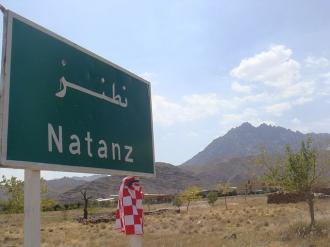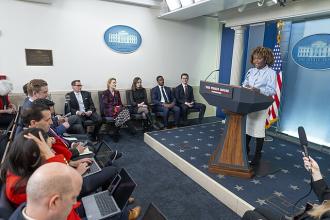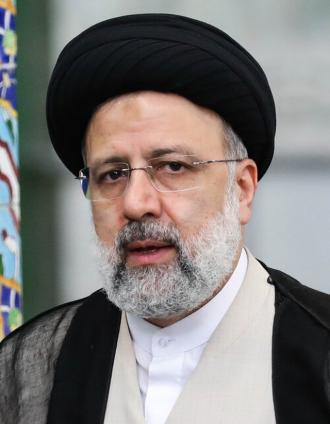It happened as he drew near the camp and saw the Calf and the dancing, that Moshe’s anger flared up. He threw down the Tablets from his hands and shattered them at the foot of the mountain. (Shemot 32:19)
The thoughts Moshe must have thought when he came down that great mountainside! After encountering God face to face, after receiving the Torah and then to encounter… this! Witnessing the utter depravation of the people… it is unimaginable the ache that must have twisted Moshe’s stomach! Reacting to what was before him, what choice did he have? There was only one appropriate response to the shameful degradation of this people… to destroy the gift he had carried down the mountain to them; to shatter the Luchot!
According to the Yalkut, even more than his anger, holiness itself demanded the Luchot be shattered. When Moshe came within sight of the sinful revelry that was all around him, the letters of the Tablets floated back to the heavens and the stone, without the sanctity of God’s word, became unbearably heavy. “This was a clear sign to Moshe that they must be broken.” (Yalkut 393)
Whether from anger or holiness, it was clear that for such a stiff-necked people there could be no understanding and certainly no Luchot. As Rav Yitzchak Karo has made clear, such a people, “…have no need for Luchot”.
The Talmud (Bava Batra 14b) teaches that the broken pieces of the Luchot were placed in the Aron side-by-side with the second tablets, luchot v’shivrey luchot munachim b’Aron. Not hidden. Not buried. Not forgotten. Instead, the shattered shards were restored to a place of honor in the Holy Ark alongside the new, restored Tablets.
Why? Why keep – let alone honor – the remnants of our shameful rebellion, of our veering so wildly off the derech? Better to turn away from them, to hide them, deny them, say kaddish for them. Better that they never had been… But if we did that, if we would have hidden them away, turned our back on our shame and our failing, then what would we have learned?
More importantly, what would we have merited.
Brokenness is not something that can, or should, be held at arm’s length or denied. It is integral to life, to our human experience. Life is loss as well as growth; hurt as well as healing. No one who has ever lost a loved one lives on unbroken. The hurt is never forgotten, never fully hidden. Indeed, the brokenness itself becomes essential to the person we become as we go forward.
We say that time “heals” but “healing” must never suggest that the break never happened; the balm of time allows us to go forward with that break, not pretending it was left behind.
Healing is not forgetfulness; forgetfulness is not healing.
There can be no future without a past. As painful as a past may have been, it must be sensitively soothed to embrace a more hopeful and promising future. It is often those who try to bury the past who suffer the most. Those who come to grips with their past, no matter how painful, no matter how shameful, are best able to regain the humanity they need to build toward a healthy and productive future.
All true. And yet, the broken Luchot represent such a dark, shameful time, a time of confusion, bewilderment, sin... How could such a moment ever benefit us? Most importantly, the broken Luchot represent not living up to standards set for us by God, not being able to reach spiritual heights. They represent unmet goals. We keep them as a reminder to not repeat the failings of the past, a reminder to do better.
The shards, however, are not mere reminders of our failings; they are shards of hope laying alongside the renewed Luchot. We all fall, err, miss our targets and goals. We all have our share of failures and breakage. We all fall short of God’s expectations, we err, we transgress, we daily prove ourselves to be human.
The more we fail, the more we fear we will be unable to restore our souls. Even if we should manage to improve, why would He want us back? When we feel this way, we must ask ourselves, have we fallen any further than the people from the pinnacle of Sinai to the Golden Calf?
It is true that in our limited understanding we can’t imagine God taking us back, but God in His infinite grace seems not to fathom ever leaving us to wander astray! “My doors,” God proclaims, “are always open to you.” If we should ever doubt God’s welcome, we need look no further than the inside of the Aron where we would discover the whole, complete, renewed Luchot – our guide to a life based on Hashem’s Torah – standing proud alongside the shards of the first Luchot, broken but never discarded or forgotten. There is room in the Aron for the broken and the whole!
God does not leave any of us behind. He never gives up on His children. He knows us in our shame and in our glory. He sees us broken and envisions us whole. Imagine how it would be for our OTD brothers and sisters, if they heard that same caring and positive message from their community! Sadly, in our religious circles there seems to be little interest in these shattered souls; little interest in keeping them close so that they can find wholeness. Instead of seeing wholeness in their shattered lives, we seem intent on destroying what remnants of wholeness continue around them, discarding whole families from yeshivot in punishment for one, turning our backs on mothers, fathers, sisters and brothers – whole families – because of a child lost and searching.
To appreciate how close God and healing truly is, we need look no further than the final posuk in the Torah. On Simchas Torah, as we stand on the cusp of our celebration of concluding our Torah cycle once again we come to the final words of Torah, l’einei kol yisrael – before the eyes of all Israel.
Moshe, the greatest prophet of all, dies. He is buried by God Himself, in a place that “…no one knows… to this day.” The people mourn thirty days. Joshua assumes leadership. And so, the Torah ends, “…and by all the strong hand and awesome power that Moshe performed before the eyes of all Israel [l’einei kol yisrael].”
But wait! Everything that happened had happened publicly, “before the eyes of all Israel”. Why is the Torah telling us this now, at the very close of the Torah?
Rashi teaches that Moshe took it upon himself to shatter the Luchot before the eyes of all Israel. God had not told him to do it. Rashi says, sh’nesao libo li’shbor ha’luchos l’eineiem – Moshe was inclined to shatter the Luchot in front of all of them – v’hiskima da’as HaKadosh Boruch Hu l’da’ato, and God approved.
And so, we come to these last three words of Torah. Devastating. And, full of hope. Why full of hope? Because of what follows the last posuk of the Torah… the first posuk of the Torah! Bereishis bara Elokim – In the beginning, God created….
Let no man think that the broken Luchot remain in their shattered state forever! Yes, we sink low – as low as the shameful worship of the eigel. Yet, no matter how low we sink, we arise again! Creation returns anew. After the shattering of the Luchot, broken by Moshe himself, God shows us we can begin anew with Bereshis – creating and building.
We can become despondent about our current situation (broken like the Luchot) but we must not allow our depression to take hold. Bereshis and creation are before us! This is the message for every broken vessel, every shattered soul. We are all the broken shards of experience and hurt. But no matter the source of the hurt, we can pick up the pieces and cross over to Bereshis! We can create and build.
Those final words of Devarim? They are the bridge to the first words of Bereshis!
On Rosh Hashanah, the day when we seek to “turn the page”, to turn away from how far we had fallen short in the previous year and turn our attention to doing better in the next, we sound the Shofar. And on this Yom Teruah two of the three sounds we hear are shevarim and teruah – broken sounds. Broken sounds for broken people. For who amongst us is not broken? Who amongst us on Rosh Hashanah – or any other day – can look in the mirror and not feel broken, shattered, and laid low?
Our tradition, our truth teaches us not to turn away from that which is broken. Those pieces of broken rock are the stepping stones to future wholeness. Neither God nor Moshe gave up on us, a “stiff-necked people.” The broken was placed alongside the whole inside the Aron, the place Kabbalah teaches us is symbolic of the human heart.
We would be wise to remember that truth when we try to turn away from the hurt and pain we feel in our own hearts. God lives there, touching the very thing we feel is most broken.















